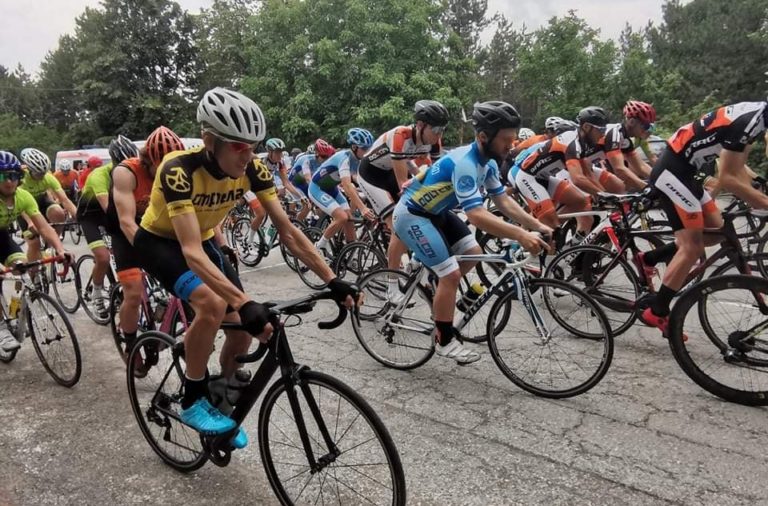Effects of hydrogen-rich water on prolonged intermittent exerciseScientific Research

Effects of hydrogen rich water on prolonged intermittent exercise
Alessandro DA PONTE 1, 2 ✉, Nicola GIOVANELLI 1, 3, Daniele NIGRIS 4, Stefano LAZZER 1, 3
1 Department of Medical and Biological Sciences, University of Udine, Udine, Italy; 2 School of Sports Medicine, University of Udine, Udine, Italy; 3 School of Sport Sciences, University of Udine, Udine, Italy; 4 Department of Laboratory Medicine, University of Udine, Udine, Italy
DOI: 10.23736/S0022-4707.17.06883-9
Abstract
Background
Recent studies have shown that hydrogen-rich water (HRW) intake has a positive effect on resting-state acid-base balance. We assessed the effect of 2-week HRW intake on repetitive sprint performance and acid-base status during prolonged intermittent cycling.
Methods
In a crossover single-blind protocol, eight trained male cyclists (age [mean ± SD] 41 ± 7 years, weight 72.3 ± 4.4 kg, height 1.77 ± 0.04 m, VO2max [V̇O2max] ] 52.6 ± 4.4 ml kg-1 min-measured daily with 2 liters of normal placebo water (PLA, pH 7.6, oxidation/reduction potential [ORP] +230 mV, free hydrogen content 0 ppb) or HRW (pH 9.8, ORP) 1) – 180 mV, free hydrogen 450 ppb). Tests were performed at the start of the study and after 2 weeks of treatment. Treatments were balanced and the order was randomized.
The 30-min intermittent cycling test consisted of 10 3-min modules, each consisting of 90 s at 40% V̇O2max, 60 s at 60% V̇O2max, 16 s full sprint, and 14 s active recovery. Oxygen uptake (V̇O2), heart rate, and power output were measured throughout the test, while mean and maximum power output (PPO), time to peak power, and fatigue index (FI) were measured during each 16-second sprint. Lactate, pH, and bicarbonate (HCO3-) concentrations were measured on blood drawn through an indwelling antecubital venous catheter at rest and after each sprint.
Results
The absolute value of PPO at the 8th and 9th times of 10 sprints in the PLA group decreased significantly, and the relative value of ΔPPO at the 6th, 8th, and 9th times of 10 sprints decreased significantly in the PLA group (mean: -12±5%, P < 0.006 ), while remaining unchanged in the HRW group. Mean power, FI, time to peak power, and total work did not differ between groups. In both cases, lactate levels increased with the number of sprints, while pH and HCO3- gradually decreased.
Conclusion
Two weeks of HRW intake helped maintain PPO at 30+ minutes of repetitive sprints to failure.
DOI: 10.23736
Published on: 20180105
Effects of hydrogen rich water on prolonged intermittent exercise
Alessandro DA PONTE 1, 2 ✉, Nicola GIOVANELLI 1, 3, Daniele NIGRIS 4, Stefano LAZZER 1, 3
1 Department of Medical and Biological Sciences, University of Udine, Udine, Italy; 2 School of Sports Medicine, University of Udine, Udine, Italy; 3 School of Sport Sciences, University of Udine, Udine, Italy; 4 Department of Laboratory Medicine, University of Udine, Udine, Italy
DOI: 10.23736/S0022-4707.17.06883-9
Abstract
Background
Recent studies have shown that hydrogen-rich water (HRW) intake has a positive effect on resting-state acid-base balance. We assessed the effect of 2-week HRW intake on repetitive sprint performance and acid-base status during prolonged intermittent cycling.
Methods
In a crossover single-blind protocol, eight trained male cyclists (age [mean ± SD] 41 ± 7 years, weight 72.3 ± 4.4 kg, height 1.77 ± 0.04 m, VO2max [V̇O2max] ] 52.6 ± 4.4 ml kg-1 min-measured daily with 2 liters of normal placebo water (PLA, pH 7.6, oxidation/reduction potential [ORP] +230 mV, free hydrogen content 0 ppb) or HRW (pH 9.8, ORP) 1) – 180 mV, free hydrogen 450 ppb). Tests were performed at the start of the study and after 2 weeks of treatment. Treatments were balanced and the order was randomized.
The 30-min intermittent cycling test consisted of 10 3-min modules, each consisting of 90 s at 40% V̇O2max, 60 s at 60% V̇O2max, 16 s full sprint, and 14 s active recovery. Oxygen uptake (V̇O2), heart rate, and power output were measured throughout the test, while mean and maximum power output (PPO), time to peak power, and fatigue index (FI) were measured during each 16-second sprint. Lactate, pH, and bicarbonate (HCO3-) concentrations were measured on blood drawn through an indwelling antecubital venous catheter at rest and after each sprint.
Results
The absolute value of PPO at the 8th and 9th times of 10 sprints in the PLA group decreased significantly, and the relative value of ΔPPO at the 6th, 8th, and 9th times of 10 sprints decreased significantly in the PLA group (mean: -12±5%, P < 0.006 ), while remaining unchanged in the HRW group. Mean power, FI, time to peak power, and total work did not differ between groups. In both cases, lactate levels increased with the number of sprints, while pH and HCO3- gradually decreased.
Conclusion
Two weeks of HRW intake helped maintain PPO at 30+ minutes of repetitive sprints to failure.



